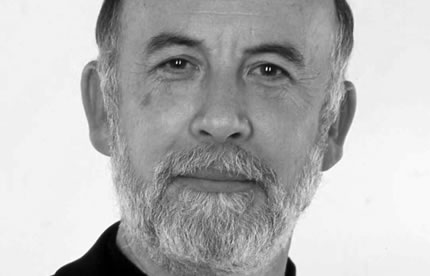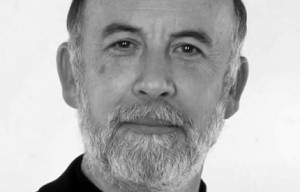
 Archive interview with Andrew Mason from the official Matrix website.
Archive interview with Andrew Mason from the official Matrix website.
MATRIX: How did you come to be involved in The Matrix?
ANDREW: Joel Silver had set this project up in LA, then it was decided that nobody liked the economic equation, but they had already cast Keanu Reeves and were in an early phase of pre-production. Because of a few connections that I had I was able to talk to Warner Bros. and eventually convince both them and the Wachowski brothers that Sydney is the film maker paradise of the world. By filming here in Sydney they would be able to get what they would not be able to, or perhaps be allowed to, in Los Angeles.
MATRIX: How many producers are there on the film?
ANDREW: The film will be produced by Joel Silver with a number of executive and associate producers, myself and Barrie Osborne amongst them.
MATRIX: You have worked on a number of films here in Australia. I found it kind of interesting that you worked on ‘Dark City’.
ANDREW: Yes there are a number of analogies and cross-overs. In December 1997 when I was doing a technical check of the finished print of ‘Dark City’ at a theater, I showed it to the Wachowski brothers. I did not describe it to them beforehand and they walked away saying ‘You could have told us!’
MATRIX: They didn’t hear an advance buzz on it?
ANDREW: No, there wasn’t any. We were deliberately quiet about it. We just made the movie and didn’t make any great hype about it, which in the end became a problem. This meant that most people didn廠 know what it was about or where it was coming from. It is fascinating to me that we are at the end of the millennium and we have a group of people from all over the world, from different sources that are having the same sort of paranoia. You could put the ‘Truman Show’ in the same category as well, and what they all come down to is the question of whether or not what I am experiencing right now is real. The analogy for ‘The Matrix’ and ‘Dark City’ goes a little further in that there is a savior, there is a Judeo/Christian background to both of them.
MATRIX: You also have the implantation of memories.
ANDREW: Yes, with different mechanisms, but the same general idea of manipulating the experience of people. It is the same principle that is being farmed, the same intellectual ground. It is not like there have never been any other excursions into this area of paranoia, it just happens that it is a wave of consciousness that I feel is happening because we are coming to the end of the millennium.
MATRIX: Have you seen the film ‘Seconds’ with Rock Hudson?
ANDREW: : That is one of my favorite movies of all time. I think someone at Paramount has managed to purchase the rights to it and is going to go ahead and remake it. Which I think is a bit pointless because it was such a product of its particular time.
MATRIX: But maybe with the nineties paranoia it would be a different film.
ANDREW: : Yes, but ‘The Matrix’ and ‘Dark City’ take that paranoia to its logical conclusion. It will seem wimpy to have a film that just dallies with it.
MATRIX: What other films have you worked on?
ANDREW: I have a background in special effects, so I formed a special effects company here working on Australian films, including Vincent Ward film ‘The Navigator’.
MATRIX: That is a great film.
ANDREW: It is a classic film. Vincent Ward is a truly insane human being, but an incredibly gifted visualist with audacious ideas. I worked on ‘The Crow’ as second unit director and visual effects supervisor in 1993, then it took us 4 years to make ‘Dark City’.
MATRIX: What has been your general sense of the film, now that it is coming to a close?
ANDREW: Aside from the fact that I think the studio has been very generous and tolerant – they have allowed a lot more filming than I would have expected them to allow – I feel that it has been a long solid slog. There have not been any real moments of crisis, it has just been time consuming setting up individual shots that could not have been done any faster. I don廠 think Larry and Andy could ever have been ready for the effort that is involved.
MATRIX: This is Larry and Andy’s second time directing. How do you feel they are as directors?
ANDREW: I think they are spectacularly successful at it. With the size of this production and the number of different departments involved, each with their own daily problems and agenda, unless there is a director that is driven and really focused, it is very easy for the effort of the individual departments to be wasted by being spread all over the place. There has not been wasted effort on this film, they shoot what they need, and no sets were built and never used. What has been done was created with a deliberate force of energy behind it, so it has all ended up being very valuable material. That is how well the directors can focus their attention on all the millions of questions that are being asked.
MATRIX: Are there usually a lot of wasted sets?
ANDREW: That is one of the things about film, there is always wastage in the process of making one because people don廠 know exactly what they want. There is a style of film making which has become common that works because of the wastage. If you go into production before the script is finalized, or the director does not spend enough time making thorough story boards and working out what shots are needed to tell the story, then the only way to ensure that you will get something usable is to over supply. For instance, hiring five cranes instead of one, which would have been sufficient if someone had worked out which type of crane was needed.
MATRIX: From what I have seen in the last couple of weeks, it seems very tight.
ANDREW: It is. I think one of the main reasons why Warner Bros. allowed filming to continue past its original date was because there had not been any wastage. Warner Bros. visit occasionally, and when they do they see that everything has been done tightly. They are providing what is necessary to achieve the shots.
MATRIX: Over the months of filming, is there a scene that has stood out as your favorite?
ANDREW: Not really. But I do like Agent Smith’s speech to Morpheus railing against the inadequacies of human kind while Morpheus is tied up in the chair. There are some great pieces of physical action. Day one of the shoot was a spectacular day with Larry and Andy shooting a scene with Hugo Weaving and Keanu on the office set and the second unit shooting two helicopters chasing through the city streets. It doesn’t get much more fun than that.
MATRIX: Shots of that helicopter chase got onto the internet in the first week of shooting. I don’t think Sydney was prepared for such a major production.
ANDREW: That is one of the things that has been good about this film making exercise; Sydney was used as a big location in the first couple of months of shooting, and everybody survived. The city fathers are happy with what was done and have decided that it is a good thing and will encourage it. A big achievement that will make it easier for the next film makers. Peter Lawless, who is the king of all location managers, manages to convince everybody to do everything. Then of course we had a lot of political help to get the helicopters approved.
MATRIX: What does ‘The Matrix’ mean to you?
ANDREW: I think Larry and Andy would like an audience to wander away wondering if what they have just experienced is itself part of the Matrix, and if the cup of coffee they are now having is something that their body is actually experiencing, or is it just another manifestation of somebody else’s programming. So ‘The Matrix’ is really just a set of questions, a mechanism for prodding an ignorant or dulled mind into questioning as many things as possible.
MATRIX: Thanks Andrew.
Interview by Spencer Lamm

Be the first to comment